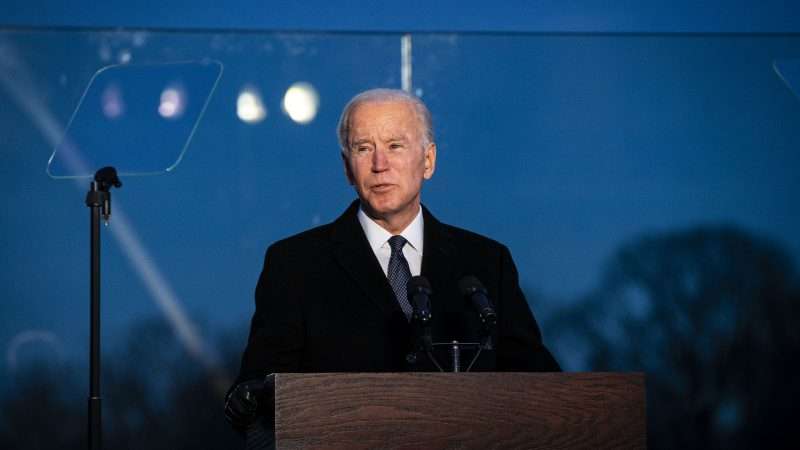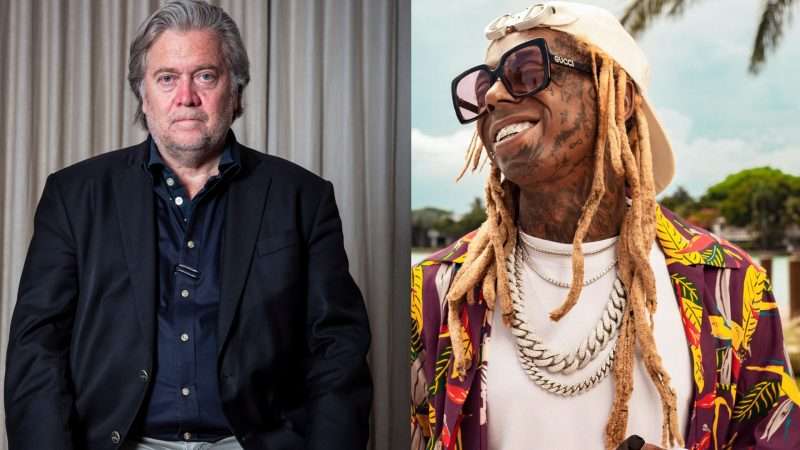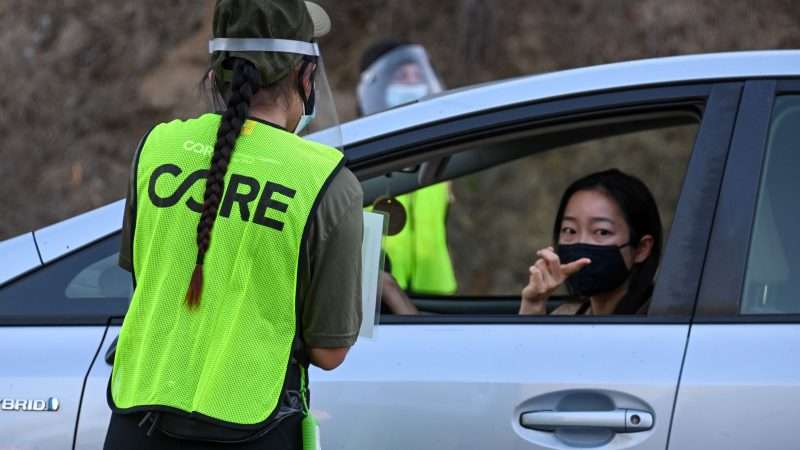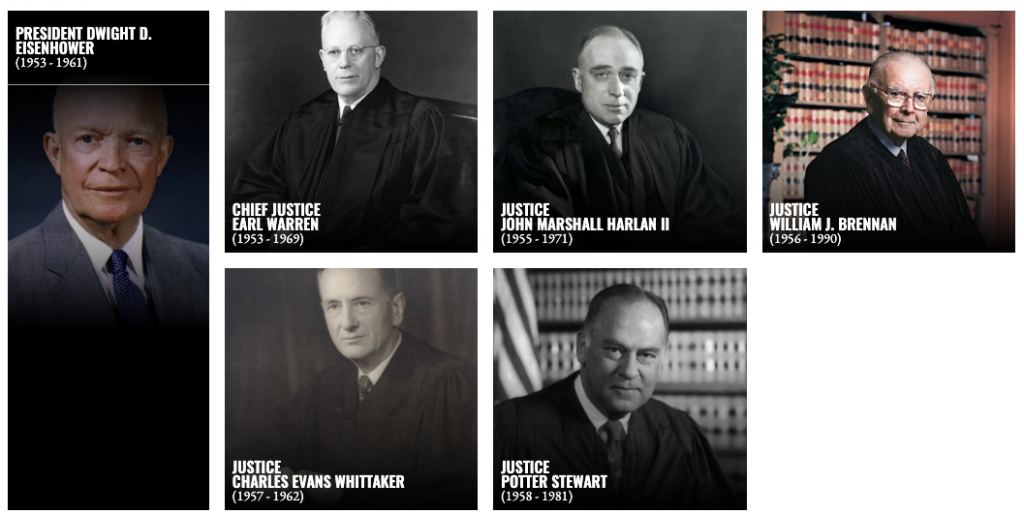Barenblatt v. U.S. (1959) upheld the House Un-American Activities Committee’s demand that Lloyd Barenblatt, a professor, testify about his alleged Communist activities while a graduate student. Justice Hugo Black, joined by Chief Justice Earl Warren and Justice William O. Douglas, dissented; I’ve long found the opinion to be particularly thoughtful and forceful, and since I was reminded of it while preparing for my First Amendment Law class next week, I decided to pass along some excerpts:
[A.] I do not agree that laws directly abridging First Amendment freedoms can be justified by a congressional or judicial balancing process…. But even assuming what I cannot assume, that some balancing is proper in this case, I feel that the Court after stating the test ignores it completely. At most it balances the right of the Government to preserve itself, against Barenblatt’s right to refrain from revealing Communist affiliations.
Such a balance, however, mistakes the factors to be weighed. In the first place, it completely leaves out the real interest in Barenblatt’s silence, the interest of the people as a whole in being able to join organizations, advocate causes and make political “mistakes” without later being subjected to governmental penalties for having dared to think for themselves.
It is this right, the right to err politically, which keeps us strong as a Nation. For no number of laws against communism can have as much effect as the personal conviction which comes from having heard its arguments and rejected them, or from having once accepted its tenets and later recognized their worthlessness.
Instead, the obloquy which results from investigations such as this not only stifles “mistakes” but prevents all but the most courageous from hazarding any views which might at some later time become disfavored. This result, whose importance cannot be overestimated, is doubly crucial when it affects the universities, on which we must largely rely for the experimentation and development of new ideas essential to our country’s welfare. It is these interests of society, rather than Barenblatt’s own right to silence, which I think the Court should put on the balance against the demands of the Government, if any balancing process is to be tolerated….
[B.] Moreover, I cannot agree with the Court’s notion that First Amendment freedoms must be abridged in order to “preserve” our country…. The First Amendment means to me, however, that the only constitutional way our Government can preserve itself is to leave its people the fullest possible freedom to praise, criticize or discuss, as they see fit, all governmental policies and to suggest, if they desire, that even its most fundamental postulates are bad and should be changed[:] {“The greater the importance of safeguarding the community from incitements to the overthrow of our institutions by force and violence, the more imperative is the need to preserve inviolate the constitutional rights of free speech, free press and free assembly in order to maintain the opportunity for free political discussion, to the end that government may be responsive to the will of the people and that changes, if desired, may be obtained by peaceful means. Therein lies the security of the Republic, the very foundation of constitutional government.”}
On that premise this land was created, and on that premise it has grown to greatness. Our Constitution assumes that the common sense of the people and their attachment to our country will enable them, after free discussion, to withstand ideas that are wrong. To say that our patriotism must be protected against false ideas by means other than these is, I think, to make a baseless charge. Unless we can rely on these qualities—if, in short, we begin to punish speech—we cannot honestly proclaim ourselves to be a free Nation and we have lost what the Founders of this land risked their lives and their sacred honor to defend.
[C.] The Court implies, however, that the ordinary rules and requirements of the Constitution do not apply because the Committee is merely after Communists and they do not constitute a political party but only a criminal gang…. Of course it has always been recognized that members of the Party who, either individually or in combination, commit acts in violation of valid laws can be prosecuted. But the Party as a whole and innocent members of it could not be attainted merely because it had some illegal aims and because some of its members were lawbreakers….
[N]o matter how often or how quickly we repeat the claim that the Communist Party is not a political party, we cannot outlaw it, as a group, without endangering the liberty of all of us.
The reason is not hard to find, for mixed among those aims of communism which are illegal are perfectly normal political and social goals. And muddled with its revolutionary tenets is a drive to achieve power through the ballot, if it can be done. These things necessarily make it a political party whatever other, illegal, aims it may have….
The fact is that once we allow any group which has some political aims or ideas to be driven from the ballot and from the battle for men’s minds because some of its members are bad and some of its tenets are illegal, no group is safe. Today we deal with Communists or suspected Communists. In 1920, instead, the New York Assembly suspended duly elected legislators on the ground that, being Socialists, they were disloyal to the country’s principles. In the 1830’s the Masons were hunted as outlaws and subversives, and abolitionists were considered revolutionaries of the most dangerous kind in both North and South.
Earlier still, at the time of the universally unlamented alien and sedition laws, Thomas Jefferson’s party was attacked and its members were derisively called “Jacobins.” Fisher Ames described the party as a “French faction” guilty of “subversion” and “officered, regimented and formed to subordination.” Its members, he claimed, intended to “take arms against the laws as soon as they dare.”
History should teach us then, that in times of high emotional excitement minority parties and groups which advocate extremely unpopular social or governmental innovations will always be typed as criminal gangs and attempts will always be made to drive them out. It was knowledge of this fact, and of its great dangers, that caused the Founders of our land to enact the First Amendment as a guarantee that neither Congress nor the people would do anything to hinder or destroy the capacity of individuals and groups to seek converts and votes for any cause, however radical or unpalatable their principles might seem under the accepted notions of the time….
Today’s holding, in my judgment, marks another major step in the progressively increasing retreat from the safeguards of the First Amendment. It is, sadly, no answer to say that this Court will not allow the trend to overwhelm us; that today’s holding will be strictly confined to “Communists,” as the Court’s language implies. This decision can no more be contained than could the holding in American Communications Assn. v. Douds (1950). In that case the Court sustained as an exercise of the commerce power an Act which required labor union officials to take an oath that they were not members of the Communist Party. The Court rejected the idea that the Douds holding meant that the Party and all its members could be attainted because of their Communist beliefs. It went to great lengths to explain that the Act held valid “touches only a relative handful of persons, leaving the great majority of persons of the identified affiliations and beliefs completely free from restraint.”
“[W]hile this Court sits,” the Court proclaimed, no wholesale proscription of Communists or their Party can occur. I dissented and said:
“Under such circumstances, restrictions imposed on proscribed groups are seldom static, even though the rate of expansion may not move in geometric progression from discrimination to arm-band to ghetto and worse. Thus I cannot regard the Court’s holding as one which merely bars Communists from holding union office and nothing more. For its reasoning would apply just as forcibly to statutes barring Communists and their respective sympathizers from election to political office, mere membership in unions, and in fact from getting or holding any job whereby they could earn a living.”
My prediction was all too accurate. Today, Communists or suspected Communists have been denied an opportunity to work as government employees, lawyers, doctors, teachers, pharmacists, veterinarians, subway conductors, industrial workers and in just about any other job. In today’s holding they are singled out and, as a class, are subjected to inquisitions which the Court suggests would be unconstitutional but for the fact of “Communism.” Nevertheless, this Court still sits!
from Latest – Reason.com https://ift.tt/35XT9Aa
via IFTTT



